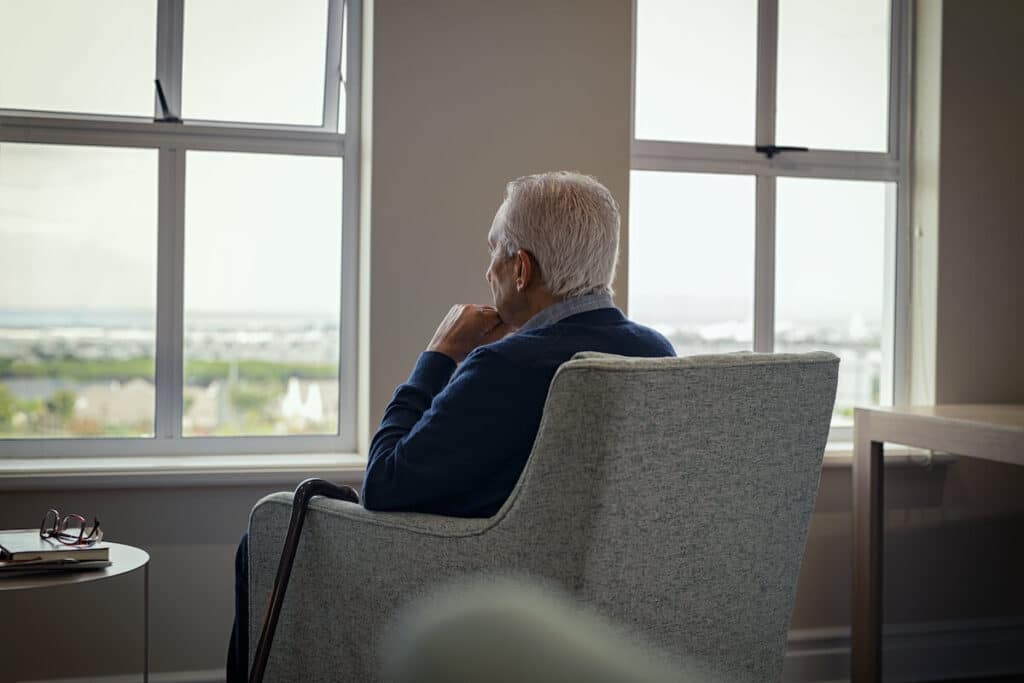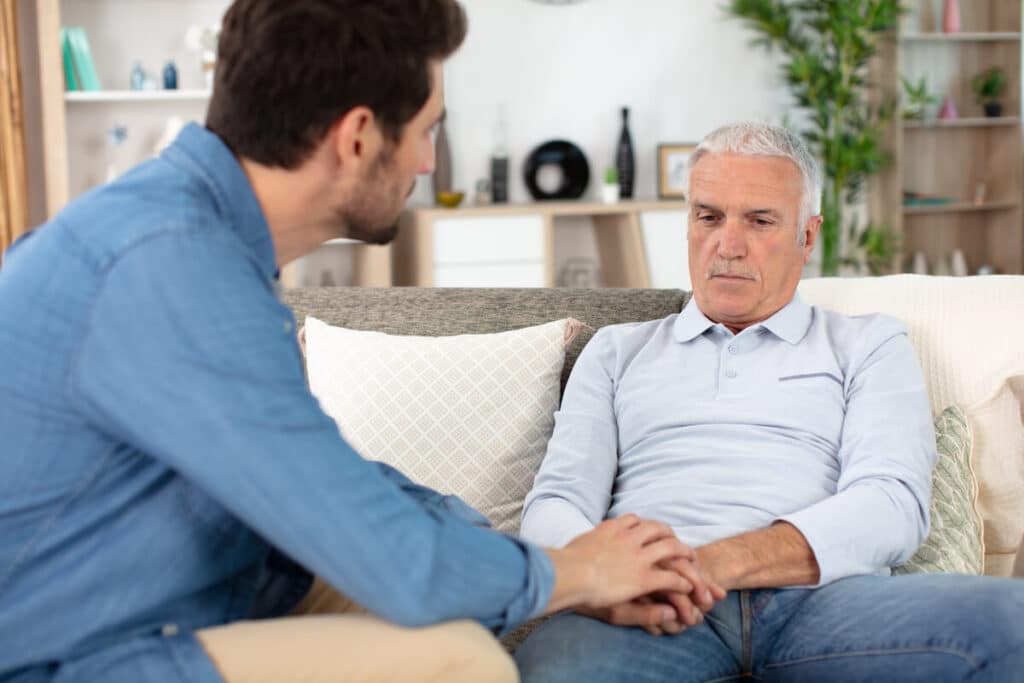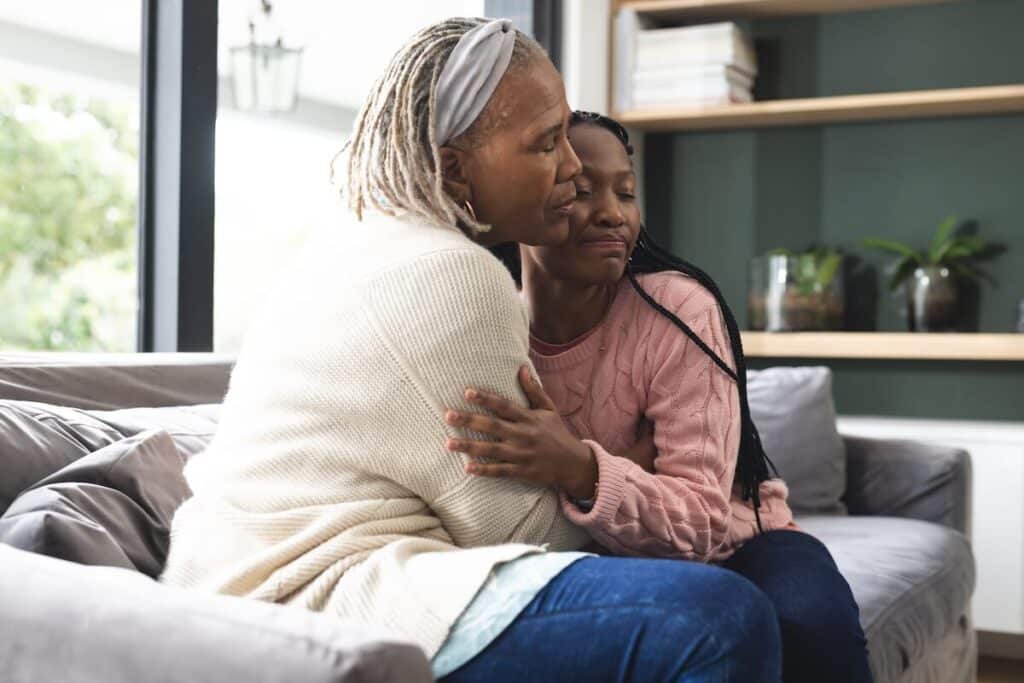Post-traumatic stress disorder, better known as PTSD, is a profound mental health condition that can significantly impact an individual’s lifestyle. Understanding the signs and symptoms of PTSD in a family member is critical for providing appropriate support and care.
At Peaceful Pines Senior Living, we not only want to raise awareness on this topic but also empower individuals to take action. Below, we explore four of the main signs of PTSD in older adults and how it can affect their lifestyle. Additionally, we share practical tips and advice for caring for a relative with PTSD.
What Triggers PTSD?

PTSD occurs after an individual has experienced or witnessed a traumatic event. This condition can manifest at any age, but it often goes undiagnosed in older adults due to various factors, including stigma and misattribution to aging.
Within senior living communities, recognizing and addressing PTSD is essential for ensuring the holistic well-being of residents. Residents may have endured various traumatic events, such as war, natural disasters, or personal losses, contributing to the development of PTSD.
Signs of PTSD in Older Adults
Flashbacks and Intrusive Memories
These episodes can be triggered by certain sounds, smells, or even conversations that remind them of the trauma. During a flashback, they might feel like they are reliving the event, leading to intense emotional distress and physical reactions such as sweating or a rapid heartbeat.
Avoidance Behavior
Older adults may go to great lengths to avoid places, people, or activities that trigger memories of the traumatic event. This can lead to social isolation and withdrawal from activities they once enjoyed.
Hyperarousal and Hypervigilance
Older adults with PTSD may exhibit hypervigilance, constantly scanning their surroundings for potential threats. This heightened state of alertness can result in sleep disturbances, irritability, and difficulty concentrating. It can also lead to an increased startle response, where even minor surprises elicit strong reactions.
Nightmares and Sleep Disturbances
They may experience frequent nightmares related to the traumatic event, leading to restless nights and daytime fatigue. The fear of reliving the trauma in their dreams can cause anxiety around bedtime, further exacerbating sleep disruptions.
Impact of PTSD on an Older Adult’s Lifestyle
PTSD significantly affects daily tasks, relationships, and overall well-being. Routine tasks that were once simple can become overwhelming challenges. For instance, grocery shopping or attending social events may trigger anxiety and avoidance behavior. These limitations can lead to a decline in physical health due to reduced activity levels and social engagement.
Relationships with family members and friends can also be strained by PTSD. The emotional burden of the condition can make it difficult for older adults to connect with others, resulting in feelings of isolation and loneliness.
Guide to Caring for Someone with PTSD
Foster Open Communication
Encourage them to talk about their feelings and experiences without judgment. Create a safe space where they feel heard and understood. Active listening and validating their emotions can go a long way in building trust and fostering open communication. Avoid pushing them to share more than they are comfortable with, and respect their boundaries.
Create a Safe Space
Ensure their living surroundings are safe and free from triggers that may exacerbate their PTSD symptoms. Identify and minimize potential triggers, such as loud noises or certain scents. Creating a calm and soothing setting can help reduce anxiety and promote a sense of security.
Encourage Professional Help
Encourage them to seek support from a licensed mental health professional experienced in treating trauma. Therapies such as cognitive-behavioral therapy (CBT) and eye movement desensitization and reprocessing (EMDR) have proven effective in alleviating PTSD symptoms.
Engage in Therapeutic Routines
Encourage them to participate in practices that promote relaxation and emotional well-being. Mindfulness exercises, such as meditation and deep breathing, can help reduce anxiety. Yoga or walking can also improve mood and overall health. Creative outlets, such as art or music therapy, can provide a means of self-expression and emotional release.
Educate Yourself
Educate yourself about PTSD to better understand what someone you care for is going through. Learning about the condition, its symptoms, and effective coping strategies will enable you to provide informed and compassionate support. Numerous resources, including books, articles, and online forums, are available to help you gain a deeper understanding of PTSD.
—

PTSD is a challenging condition, but with the right approach and a compassionate heart, you can help a family member lead a fulfilling and enriched life. If you need further guidance or personalized advice, consider reaching out to Peaceful Pines Senior Living. Our team is always ready to support you.



